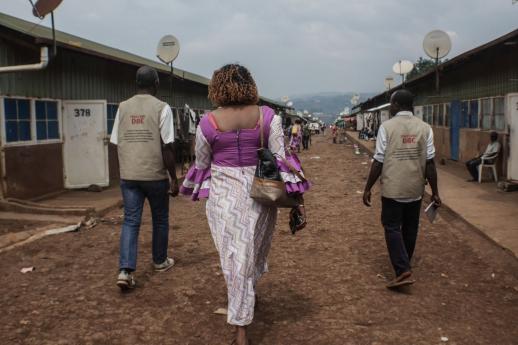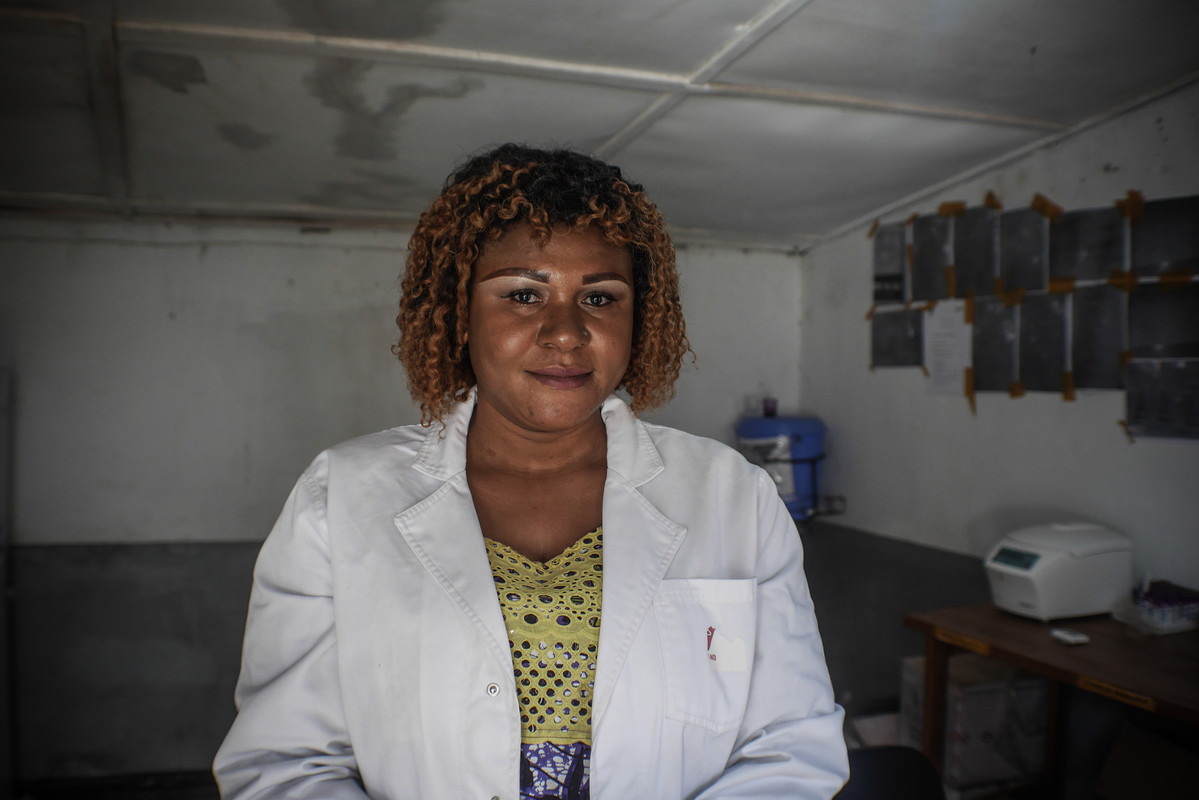Dr Gisele Nyamalibu is a local health worker in the Democratic Republic of Congo (DRC), currently leading the humanitarian response in Bukavu following the volcanic eruption in Goma. Driven by her passion to provide crucial sexual and reproductive healthcare (SRH), she spends her time servicing the refugee community. We spoke to her about why representation and localization are vital in SRH service delivery.
A dedicated advocate of sexual and reproductive health and rights (SRHR), Dr Nyamalibu has observed the many complexities in SRHR service delivery for refugee women. In 2015, while working as a health supervisor in a Burundi refugee camp in Kavimvira, she witnessed flaws in the implementation of aid where SRHR needs were “not taken into account.”
“Sometimes sexual and reproductive services are not a priority according to the actors who intervene in this sector, and for me, I found that it’s an aspect that is being neglected. Perhaps it’s not seen as a priority, and yet it really is.”
A unique insight into the needs of the vulnerable
Years of experience working with refugee women and children in camps has given Dr Nyamalibu insight into the reproductive healthcare needs of vulnerable displaced women. “There were cases of young girls who were raped in the refugee camps, and others who became pregnant in the camps. There were women who did not know how to control their fertility and who did not know how to plan their birth and became pregnant in the camps. A woman comes as a refugee, in a difficult situation with children, and gets pregnant in the camp because there was no family planning service.”
The DRC-born medical doctor was drawn to SRHR to bridge the gap in service delivery. “There was no service to deal with cases of rape and sexual abuse that occurred among refugees, and from that I said to myself: no, this is a sector that many actors ignore but which is really important.”
when
country
Congo, Dem. Rep.
region
Africa
Subject
Humanitarian
Related Member Association
Association Congolaise pour le Bien-Etre Familial

Dr Nyamalibu out in the field at a refugee camp
IPPFOn 22 May 2021, the eruption of one of world’s most active and dangerous volcanoes, Mount Nyiragongo in Goma, led to the displacement of approximately 500,000 people to nearby areas, including Bukavu and as far as Rwanda. Leading the Association pour le Bien-Etre Familial (an IPPF Member Association) response team for displaced women in Bukavu, Dr Nyamalibu recalls a situation where a client required immediate post-abortion care. “I received a woman, a young woman of 30-years-old who suffered a miscarriage following the eruption. She fled the scene in shock. The client learned about the ABEF-ND project through the Community-Based Distributors (CBD).”
Unsafe abortion in fragile settings is linked to maternal death and high morbidities. As well as post-abortion care, the ABEF-ND team are also providing displaced people from Goma sensitization on reproductive health and available services, contraception, sexual and gender-based violence (SGBV) support, and STI/HIV management.
On the success of the response, she explains, “I am satisfied to see that the response is progressing well. There are displaced people who come to us and even call others to inform them there are emergency services for them.”
Localizing aid to be at the forefront of service delivery
The localization of the aid sector positions dedicated local humanitarians like Dr Nyamalibu at the forefront of service delivery. With the provision of funds and technical support, local actors can provide vital emergency services to vulnerable women and girls in the community. “This woman came to us and she spoke only Swahili and she was very comfortable. We talked, and her SRH needs were met.” On the importance of localization she adds: “It’s important to know the region and the local language because it allows the displaced person in need to make his or her needs known easily and thus, you can understand and respond clearly. Given the sensitivity of our work, it facilitates the dialogue for better care.”
In the aid sector, and most especially SRH services, representation is key. As a female doctor in the field delivering these life-saving services to most vulnerable and marginalised women, Dr Nyamalibu believes her gender is “an asset in this response.” She explains: “Women feel more comfortable divulging their SRH concerns to me and when they come, even the young girls find me and are more comfortable discussing with me. They express themselves and even go beyond to present other medical needs. It’s beneficial and shows that they have confidence in me and that they also appreciate that it’s a woman like them offering this service.”








